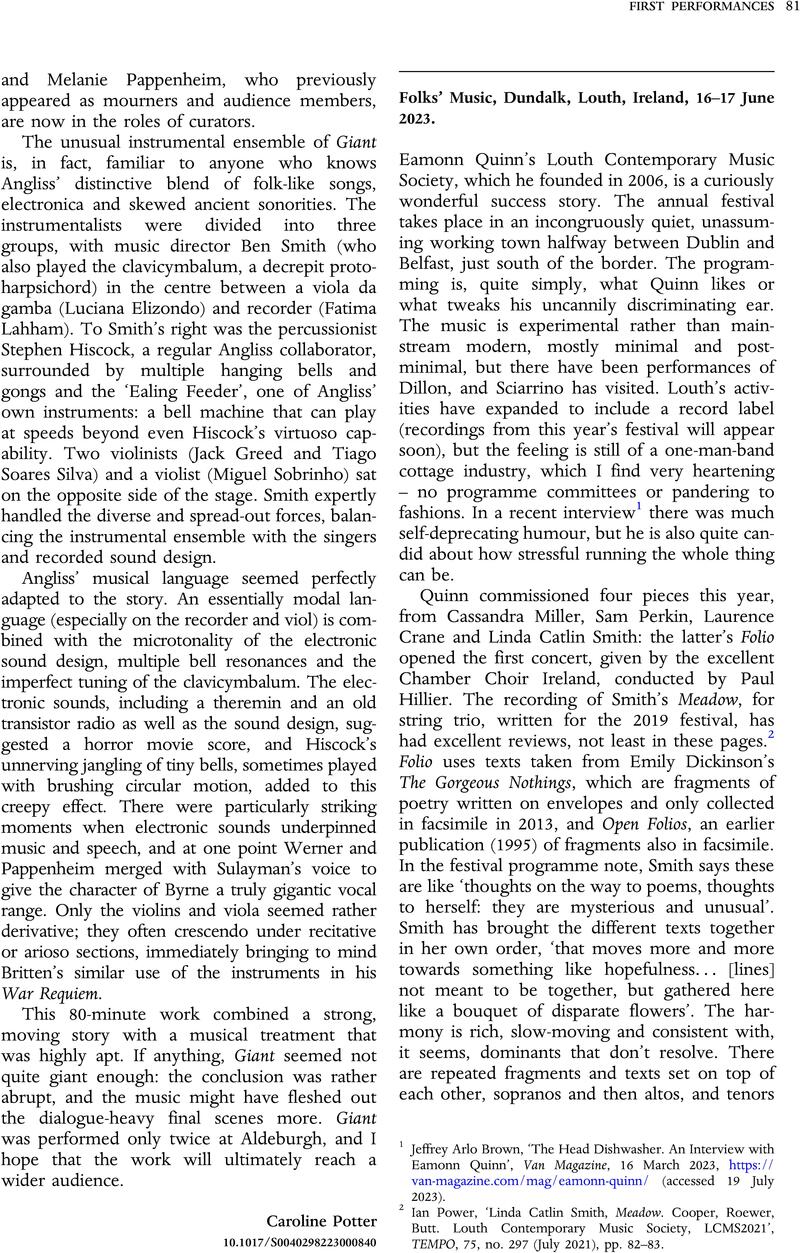No CrossRef data available.
Article contents
Folks’ Music, Dundalk, Louth, Ireland, 16–17 June 2023.
Published online by Cambridge University Press: 02 January 2024
Abstract

- Type
- FIRST PERFORMANCES
- Information
- Copyright
- Copyright © The Author(s), 2023. Published by Cambridge University Press
References
1 Jeffrey Arlo Brown, ‘The Head Dishwasher. An Interview with Eamonn Quinn’, Van Magazine, 16 March 2023, https://van-magazine.com/mag/eamonn-quinn/ (accessed 19 July 2023).
2 Power, Ian, ‘Linda Catlin Smith, Meadow. Cooper, Roewer, Butt. Louth Contemporary Music Society, LCMS2021’, TEMPO, 75, no. 297 (July 2021), pp. 82–83CrossRefGoogle Scholar.
3 The film is available at https://samperkincomposer.com/artistic-work (accessed 19 July 2023).
4 Attacca Quartet, Evergreen. 2022, Nonesuch, 7559791350.



